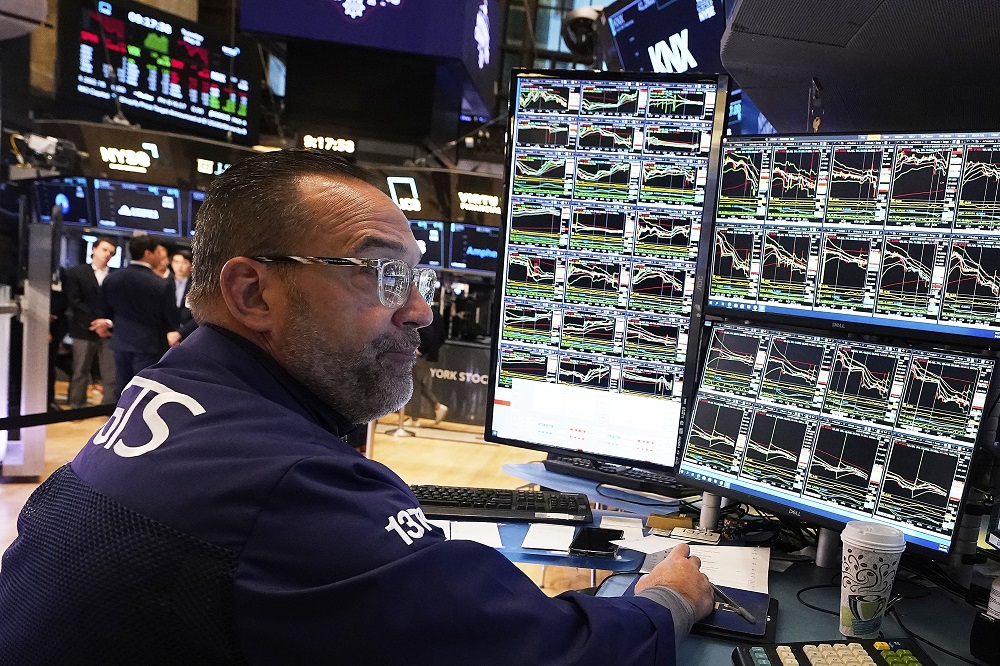Why do we focus on US equities over bonds?
The foreign holdings of US equities are now close to double those of treasuries. So, we should focus on US equities over bonds.

Perhaps understandably, there is quite a bit of angst in the market about the outlook for treasuries. The prospect of an extra USD3.8tr of federal debt over the coming decade, the stagflationary effects of tariffs, and questions about Federal Reserve independence are just three of the factors cited by those who see the market in peril – and the US dollar under threat by association. But Steven Barrow, Head of Standard Bank G10 Strategy, thinks that equities are just as important, if not more important for the course of the US dollar and, here too, the omens are not good.
Why do we focus on equities over bonds? In Steven Barrow’s opinion, there are a number of reasons. One is simply that foreign holdings of US equities are now close to double those of treasuries. That’s a big change since the onset of the pandemic in early 2020, when the two were about equal. Now clearly much of this burgeoning gap is down to valuation effects and not new purchases as equities have soared while bond prices have fallen. But irrespective of the reason for the big gap, the US dollar seems more at risk from equity withdrawal from the US than treasury withdrawal.
Indeed, the fact that valuation gains on US stocks are probably so large for many may be more likely to prompt profit-taking during this period of extreme uncertainty than treasuries, where there is seemingly no profit to take. Nonetheless, everybody seems more concerned about the US dollar tumble created by treasury market capitulation than equity disinvestment. This might be because it is seemingly easier to see the case for a double whammy of treasury and US dollar weakness than it is for equities and the US dollar.
The outlook for the US budget deficit and debt fits this description. For with the Houses of Representatives already passing Trump’s budget, the treasury market is halfway towards being asked to price an extra USD3.8tr of debt over the coming decade, according to the bipartisan Congressional Budget Office. And, with around a third of this debt held overseas, even a modest disinvestment by foreign accounts could spell doom for the US dollar. But we should not forget that the budget contains measures that could have foreign investors in US equities scampering for the hills.
For instance, the budget rolls back all of the work undertaken by the Biden Administration in the Inflation Reduction Act (IRA) of 2022. Now, while that legislation was rightly blamed for contributing much of the budget’s recent deterioration, its focus on clean energy has sucked capital into the US, including in equities, where overseas investors have been keen to ride this new ESG wave. But now that wave has crashed and the risk is that this flood of capital, that has been invested in the US, floods back out as it diverts to regimes that appear far more stable with respect to their ESG aspirations – like the EU.
We can say similar things about other ESG aspects, such as diversity, equity and inclusion (DEI) which are increasingly being sidelined by US companies as they seek to avoid the wrath of the new administration. Yet another concern for investors in US equities must be the influence that the Administration is trying to bring to bear on investment and production decisions of US firms, such as Apple’s overseas production facilities.
In short, if there are reasons to be concerned that the overall budget maths will harm treasuries, it seems that equities could be similarly disadvantaged and that, as we said earlier, could be even more costly for the US dollar given that there is so much more invested in US stocks than treasuries by foreign residents. And one final point is that fixed-income investors have traditionally hedged a larger proportion of their currency exposure than equity traders.
Now that might have evened out a bit over time, reflecting, amongst other things, more centralised currency management within firms as well as the use of outside currency managers. Nonetheless, Steven Barrow still feels that equity flows have greater powers over movements in the US dollar than those of treasuries. In sum, while we do feel that the market is right to have concerns about the budget and treasuries, the prospects for US dollar weakness may lie more with how overseas investors allocate their stock portfolios than their bond holdings.








